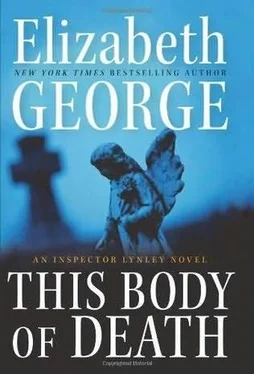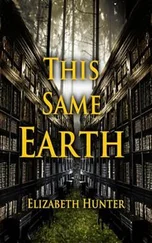Truth of the matter was that Robbie hadn’t told Meredith everything beneath the sweet chestnut tree in Burley. There hadn’t seemed to be a point, mostly because Jemima had a history of attachments to men while Meredith-bless her heart-definitely had not. He hadn’t wanted to rub this fact in Meredith’s face, her being a single mum as the result of the only disastrous relationship she’d managed. Besides, Robbie respected Meredith Powell: how she’d stepped onto the pitch of motherhood and was making a proper job of it. And anyway, Jemima hadn’t left Gordon Jossie for another man, so that much of what Robbie had told Meredith had been true. But, exactly in character, she’d found another man quickly enough. Robbie hadn’t told Meredith that. Afterwards, he wondered if he should have.
“He’s very special, Rob,” Jemima had burbled in that way she had. “Oh, I’m madly in love with him.”
That’s what she always was: madly in love. No point in like or interest or curiosity or friendship when one could be madly in love. For madly in love equated warding off solitude. She’d gone to London to think, but thinking was something that led Jemima to fear, and God knew she’d long rather run from fear than face it head-on. Well, didn’t everyone? Wouldn’t he if he could?
Robbie wound up the hill that was Honey Lane, a short distance outside Burley. In midsummer it was a lush green tunnel, sided by holly and arced by beech and oak. It was packed earth only-no paving here-and he passed along it with care, doing his best to avoid the occasional pothole that made the going rough. He was less than a mile outside the village, but one stepped back in time in this area. The trees sheltered paddocks and beyond them ancient buildings marked both common holdings and farms. These were backed by a wood, and the wood was thick with fragrant scotch pines, with hazel, and with beech, providing a habitat for everything from deer to dormice, from stoats to shrews. One could walk the distance here from Burley, but people seldom did. There were easier paths to follow, and in Robbie’s experience people liked their ease.
At the crest of the hill, he made the left turn onto what had long been Hastings land. This comprised thirty-five acres of paddock and wood, with the rooftop of Burley Hill House just visible to the northeast and the peak of Castle Hill Lane beyond it. In one of the paddocks his own two horses happily grazed, delighted not to be carrying his weight round the New Forest on this hot summer day.
Robbie parked near the tumbledown barn and its attendant shed, trying not to see them so he would not have to think about how much work he needed to put into them. He climbed out of the Land Rover and slammed the door. The noise brought his dog loping from round the side of the house where he’d no doubt been sleeping in the shade, his tail wagging and his tongue hanging, and all of himself looking out of character. The Weimaraner was normally elegant in appearance. But he hated the heat and he’d rolled in the compost heap as if this would help him to escape it. He now wore a fragrantly decomposing mantle. He paused to shake himself off.
“Think that’s amusing, do you, Frank?” Robbie asked the dog. “You’re a real sight. You know that, eh? I shouldn’t let you near the house.”
But no woman lived there to admonish him or to usher Frank from the house herself. So when he went inside and the dog tagged along, Robbie allowed it and was grateful for the company. He fetched the Weimaraner a fresh bowl of water. Frank slopped it happily onto the kitchen floor.
Robbie left him to it and went for the stairs. He was sweaty and he smelled all of horse from transporting the pony, but instead of heading for a shower-he could hardly be bothered with that at this time of day, as he’d only get sweaty and smelly again-he went into Jemima’s room.
He told himself to be calm. He couldn’t think if he got himself into a state, and he needed to think. In his experience, there was an explanation for everything, and there was going to be an explanation for the rest of what Meredith Powell had told him.
“Her clothes are there, Rob. But not in the bedroom. He’s boxed them all up and he’s put them in the attic. Gina found them because, she said, there was something a little strange-that’s how she put it-when he was talking about Jemima’s car.”
“So she did what? Take you up to see them? Up to the attic?”
“She just told me about them at first,” Meredith said. “I asked to look. I reckoned they could’ve been there awhile-from before Gordon and Jemima took the place-so they could’ve been someone else’s. But they weren’t. The boxes weren’t old, and there was something I recognised. Well, it was mine, actually, and she’d borrowed it and I’d never got it back. So you see…?”
He did and he didn’t. Had he not heard from his sister at least weekly since her departure, he would have headed to Sway at once, determined to have a face-to-face with Gordon Jossie. But he had heard from her and what she’d repeated at the end of each phone call had been the reassurance, “Not to worry, Rob. It’ll all come right.”
He’d said at first, “What’ll all come right?” and she’d sidestepped the question. Her avoidance had forced him more than once to ask, “Did Gordon do something to you, my girl?” to which she’d replied, “Of course not, Rob.”
Robbie knew he’d now have assumed the worst had Jemima not stayed in touch: Gordon had killed her and buried her on the property somewhere. Or out on the Forest and deep within a wood so that if her body were ever found, it would be in fifty years, when it was too late to matter. Somehow, an unspoken prophecy-a belief or a fear-would have been fulfilled by her disappearance because the truth of the matter was-he did not like Gordon Jossie. He’d said to her often enough, “There’s something about him, Jemima,” to which she’d laughed and replied, “You mean he’s not like you.”
He’d been forced finally to agree with her. It was easy to like and embrace people just like oneself. It was another matter with people who were different.
In her bedroom now, he phoned her again. Again, no reply. Just the voice, and he left a message once he was asked to do so. He kept it cheerful to match her own tone. “Hey, birthday girl, ring me, eh? Not like you not to get back in touch and I’m having a bit of a worry, I am. Merry Contrary came to see me. She had a cake for you, luv. Got itself all melted in the bloody heat but it’s the thought, eh? Ring me, luv. I want to tell you about the foals.”
He found he wanted to go on a bit, but he was talking into a void. He didn’t want to leave his sister a message. He wanted his sister herself.
He walked to her bedroom window, its sill yet another depository for what Jemima Clutterduck could not bear to part with, which was nearly everything she’d ever possessed. In this spot, it was plastic ponies, crammed one upon the next and covered with dust. Beyond them he could see the real thing: his horses in the paddock with the sunlight glowing off their well-groomed coats.
The fact that Jemima had not returned for the foaling season was what should have told him, he thought. It had long been her favourite time of year. Like him, she was of the New Forest. He’d sent her to college in Winchester as he himself had been sent, but she’d come home when her course work was completed, rejecting computer technology for baking. “I belong here,” she’d told him. As indeed she did.
Perhaps she’d gone to London not for time to think but just for time. Perhaps she’d wanted to break it off with Gordon Jossie but hadn’t known how else to bring it about. Perhaps she reckoned if she was gone long enough, Gordon would find someone else and she herself could then return. But none of that was in character, was it?
Читать дальше












